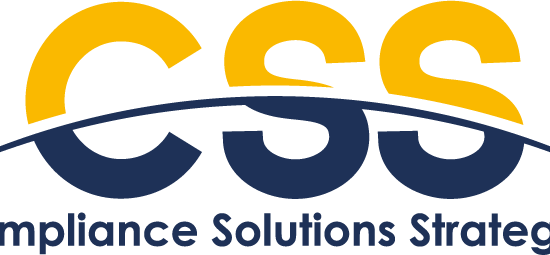Groundhog Day for Compliance & the SEC in 2021
It’s almost mid-February, and we’ve come out of the January haze. Now we have a bit more information on where the year is headed. It’s not too late to look back at prominent compliance themes and trends from 2020 and how they will help us prioritize the compliance and SEC landscape for 2021. Putting aside living in the current climate of COVID-19 and our remote workplaces, our compliance world was fairly predictable, manageable and transparent. But we’re still not sure whether we can accurately predict six more weeks of winter or if spring is around the corner with the compliance crystal ball…
Moving forward to 2021 and with a change in the SEC administration, it is integral to note which topics will remain the same and which may be unpredictable entering the new year. First, let’s start with the easier, perennial topics that will not change regardless of the shift in administration:
- Continued focus on cybersecurity and information security
- Safeguarding client assets and other custody issues
- Adequacy of disclosures will continue
- Conflicts of interests and sales practices
- Protection of retail investors, seniors and saving for retirement
The previous SEC administration focused on private funds, while the past four years changed to retail protections. Let’s take a look at topics that surely may be unpredictable in 2021:
- Will there be an end to “rule easing” that we’ve had over the past four years?
- A shift to tougher rulemaking
- More, new rulemaking
- Possibility of changes to Reg BI
Thinking about some of the tougher questions, one trend over the last few years was OCIE’s shift to encourage firms to take direct corrective actions and response to deficiency letters. If firms can fix the problem, isn’t that better than enforcement? Things to think about:
- New regulations
- Examination trends (will there be more?)
- Enforcement trends
- OCIE’s concerns about adequate staff surely will continue
- OCIE’s highlighted focus on training
Looking ahead and knowing that your resources and time are limited, where should compliance teams focus their attention?
- This is a very prudent time to button up your compliance program and take a fresh look at the accuracy of regulatory filings
- Identify risks, such as conflicts, and update related policies to mitigate the risks
- Look at your marketing disclosures
- Think about RegTech to improve operational efficiency
- Test fee calculations and consistency of portfolios adhering with objectives and mandates
- Make sure you remain true to your exam response letters: no recidivism because it may be a big issue
The more things change, the more they stay the same in so many ways (a’ la Groundhog Day). This is a pivotal time for CCOs and compliance teams, and hopefully things will come into focus soon with SEC published priorities for 2021 and a new Chairman’s agenda in place. Reach out to CSS’s regulatory compliance experts to prepare for both the predictable and unpredictable compliance climate: info@cssregtech.com.
ESAs Run Out of Options on PRIIPs KID as Draft RTS Has Been Submitted to the EU Commission
The ESAs (the trinity of the ECB, EIOPA & ESMA) relented to pressure from the EU Commission to submit the draft RTS on PRIIPs KID that failed ratification by EIOPA in July of 2020. The draft RTS (here) was submitted yesterday (February 3, 2021) in the face of a recent deadline issued by the Commission.
In July 2020, the ESAs had informed the Commission of the outcome of a review that had been carried out with respect to the PRIIPs KID. The review itself was in response to an ESA consultation paper on a draft RTS to improve the KID content, thus addressing some of the key criticisms of the document make-up. In July 2020, the draft RTS was adopted by the Boards of the EBA and ESMA, but did not receive a qualified majority in the Board of EIOPA.
On the 18th of December 2020, the Commission wrote to the ESAs (see letter here) inviting them “to jointly submit the draft RTS…amending the RTS laid down in the Delegated Regulation at the earliest opportunity, and at the latest within a period of six weeks“, referring to the need to make urgent amendments to European Commission’s Delegated Regulation (EU) 2017/653 (the “PRIIPs Regulation”).
The EIOPA Board of Supervisors subsequently re-considered the draft RTS. As explained in the ESA’s cover letter (here), while some national authorities continued to have reservations about the draft text, these concerns will be taken up in the broader review Level 1 review of PRIIPs Regulation. (See CSS’s earlier blog post here.)
With the ESAs submission of the draft RTS, the Commission can now adopt the Level 2 text. If adopted by the European Commission, the RTS would be subject to non-objection by the European Parliament and the Council of the European Union.
To speak with a regulatory expert on the UCITS KIID to PRIIPs KID transition, please email info@cssregtech.com.
It’s settled – the cart goes before the horse…for PRIIPs KID
The investment fund industry is eagerly awaiting the result of a new vote in EIOPA on Level 2 changes for PRIIPs KID. This is after the EU’s policy makers indicated they were not interested in Level 1 reform being demanded after ESAs pushed back on signing off on the L2 RTS last year. In fact, the EU Commission’s Financial Services commissioner Mairead McGuinness seems quite determined “that national competent authorities will be able to overcome the difficulties and will adopt the draft amending RTS” and that the Commission was prepared to “take all necessary steps” to drive home the agenda.
A determination on the extension of the UCITS KIID grandfathering period that ends on 31 December 2021 will only be taken after the RTS has been signed off. With the Level 1 review provisionally slated for H1 2022, the Commission is quite literally insisting the proverbial cart (Level 2 – review) will go before the horse (Level 1 – review).
The Commission’s stance is certainly seen by many as not in the spirit of how things are done with Better Finance and the CFA Institute issuing a joint statement yesterday here calling on the Commission to change course.
For more information on starting your UCITS KIID to PRIIPs KID transition now, check out the UCITS to PRIIPs resource centre. You can also email our Fund Reporting regulatory experts at info@cssregtech.com who can guide you and help put together a project plan and automate the document production and distribution process.
The Short Selling Saga: Market Volatility & Compliance
The Big Short. Or Long. Whatever your strategy, the drama currently being played out between hedge funds and retail investors — in issuer names like GameStop, Blockbuster, AMC, and [insert name of next targeted guinea pig] — reminds us that market volatility is unpredictable. The lesson for regulatory attorneys and compliance departments, therefore, is one of containment. In other words, don’t let market turmoil affect your number one priority, which is to stay on the right side of the rules.
Concentrated short selling, for example – or even taking large stakes on the long side – create under-the-radar regulatory obligations (currently being overshadowed by the valid market manipulation concerns in today’s Reddit vs. hedge fund saga). In many markets around the world, such as the UK, the EU and Japan, immediate disclosure requirements are triggered when taking a short position amounting to just one-tenth or two-tenths of a percent of an issuer’s outstanding shares. Even more markets – about 100 countries – require immediate filings on the long side, albeit at slightly more relaxed levels (such as 1%, 3% or 5% of issuer outstanding). These rules are determined by where you invest, not where you are based as an investment firm.
Thus, investing in 20 different markets means you’re subject to 20 different local disclosure regimes (regardless of where your firm is located). The filing deadlines range anywhere from the same day to 7 days, depending on the jurisdiction. In the EU for example, taking a short position of at least 0.1% of an issuer’s shares triggers a filing requirement due to the local regulator the next day at 3:30pm. The penalties vary, ranging anywhere from a proverbial “slap on the wrist” to criminal proceedings, monetary fines in the millions, and public exposure.
There’s only so much you can control in the markets. Control what you can by monitoring your investment holdings, knowing the rules, and filing your disclosures. For more information on mitigating short selling risk or on global investment monitoring, email our Regulatory Guidance experts at info@cssregtech.com.
New York State Mandatory Registration for Investment Adviser Representatives
First, a bit of background:
On December 2, 2020 the New York State Department of Law adopted new regulations, to administer registration and examination requirements of natural persons representing investment advisers. Prior to the adoption of the new regulations, New York was the only state that did not register individuals acting in the capacity of an investment adviser representatives through FINRA’s CRD system. The update to the regulations is beneficial in the following ways, among others: Providing the public with detailed information about investment adviser representatives who provide investment advice in the State, modernizing the registration process, aligning the registration process with that of all other states and diminishing confusion in the industry.
Who?
For State-Registered Investment Advisers included in the registration requirement are all principals, supervisors, investment adviser representatives, and individuals who are solicitors. It is important to note that all investment adviser representatives, principals, and supervisors of investment advisers registered with the State of New York should have already met the preexisting exam and or waiver requirements by submitting the Form NY-IAQ.
For SEC-Registered Investment Advisers included are those individuals who are defined as investment adviser representatives (by the SEC). The SEC definition of an investment adviser representative does not include principals or supervisors except for those persons otherwise fitting within the definition.
What?
- Submission of Form U4
- NY-IAQ – Validation of qualification, as applicable & email to IPBIAR@ag.ny.gov
- NY-IASW – Special Waiver request form, as applicable & email to IASW@ag.ny.gov
- Fees – $200 New York IAR registration fee and $15 CRD System Filing fee. (The $15 CRD system filing fee will not be included for individuals currently registered as investment adviser representatives in other states.)
- Examination/s – If qualifications are not met through previously submitted NY-IAQ form, special waiver, or professional designation.
The Form NY-IASW is to be used for the purpose of applying for a new special waiver for exemption from the examination requirements. Individuals who currently serve, permissibly, as investment adviser representatives that have a minimum of two (2) years of experience as such prior to December 2, 2020, may apply for the new special waiver. Individuals previously acting solely as solicitors and individuals with disciplinary history are not eligible for the new special waiver. The waiver request will be reviewed by the New York Investor Protection Bureau and the CRD system will be updated with the status accordingly. Waivers that are not approved will necessitate the passing of the examinations (Series 65 or Series 7 and Series 66).
Individuals may also meet the investment adviser representative registration qualifications by having been registered in other jurisdictions (continuously registered for two (2) years prior to the date of filing registration information), or by holding (in good standing) the following professional designations: CFP, ChFC, PFS, CFA or CIC.
When?
The State of New York Investor Protection Bureau is providing an implementation period beginning on February 1, 2021 through December 2, 2021. Even though the implementation period is ten months in length, the time will pass quickly. The New York Investor Protection Bureau is strongly encouraging advisory firms to submit the Form U4, with applicable fees, as soon as possible beginning on February 1, 2021. The Form U4 filings for all individuals must be submitted by August 31, 2021. Applicants for Investment Adviser Registration who do not meet the qualification requirements have until December 2, 2021 to pass the required examinations.
Where?
Form U4 filings must be submitted via the CRD system. The Form NY-IAQ and Form NY-IASW must be submitted to the specific email addresses as noted above. Full details and information may be reviewed at: https://ag.ny.gov/press-release/2020/attorney-general-james-announces-final-rules-modernize-and-streamline-securities
Compliance Solutions Strategies Named to REGTECH100
2021 marks the second consecutive year CSS has been awarded for its
innovative regulatory compliance technology and services
NEW YORK, January 5, 2021 – Compliance Solutions Strategies (“CSS”), a leading RegTech platform providing technology-driven solutions which enable financial services firms to meet their regulatory compliance requirements, today announced its inclusion in the REGTECH100. Compiled by specialist research firm RegTech Analyst, the annual list recognizes the world’s 100 most innovative RegTech companies with winners selected by a panel of industry experts and analysts.
The list was updated for 2021 to identify the next generation of solution providers shaping the future of the compliance, risk management and cybersecurity industries. The RegTech industry has experienced tremendous growth in recent years as banks and other financial institutions continue to grapple with the unrelenting pace of regulatory change across many jurisdictions.
With its selection to the REGTECH100 for the second consecutive year, CSS caps off a productive year in which the company continued to build momentum and deliver market-leading solutions with highlights including:
- The acquisition of AMFINE, a leading provider of regulatory reporting solutions in Europe, to create the first fully end-to-end global platform for investment fund reporting
- The release of a central data management solution that powers the CSS platform – the Regulatory Book of Record (RBOR)
- The launch of a new Transaction Reporting module to enable our buy-side clients to comply with the Securities Financing Transactions Regulation (“SFTR”)
- The addition of a new module of CSS’s Investment Monitoring solution which allows foreign institutional investors to manage restrictions related to Sensitive Industries in over 90 jurisdictions
- The development of the first solution automating the production of Form CRS to meet new SEC requirements for investment advisers servicing retail investors
“We’re delighted to once again be included among the world’s most innovative RegTech companies,” said Doug Morgan, CEO of CSS. “CSS continues to demonstrate its business resilience by helping asset managers, asset servicers and insurers adopt more strategic approaches to managing compliance by leveraging our distinct combination of market-leading regulatory technology, managed services and regulatory expertise.”









